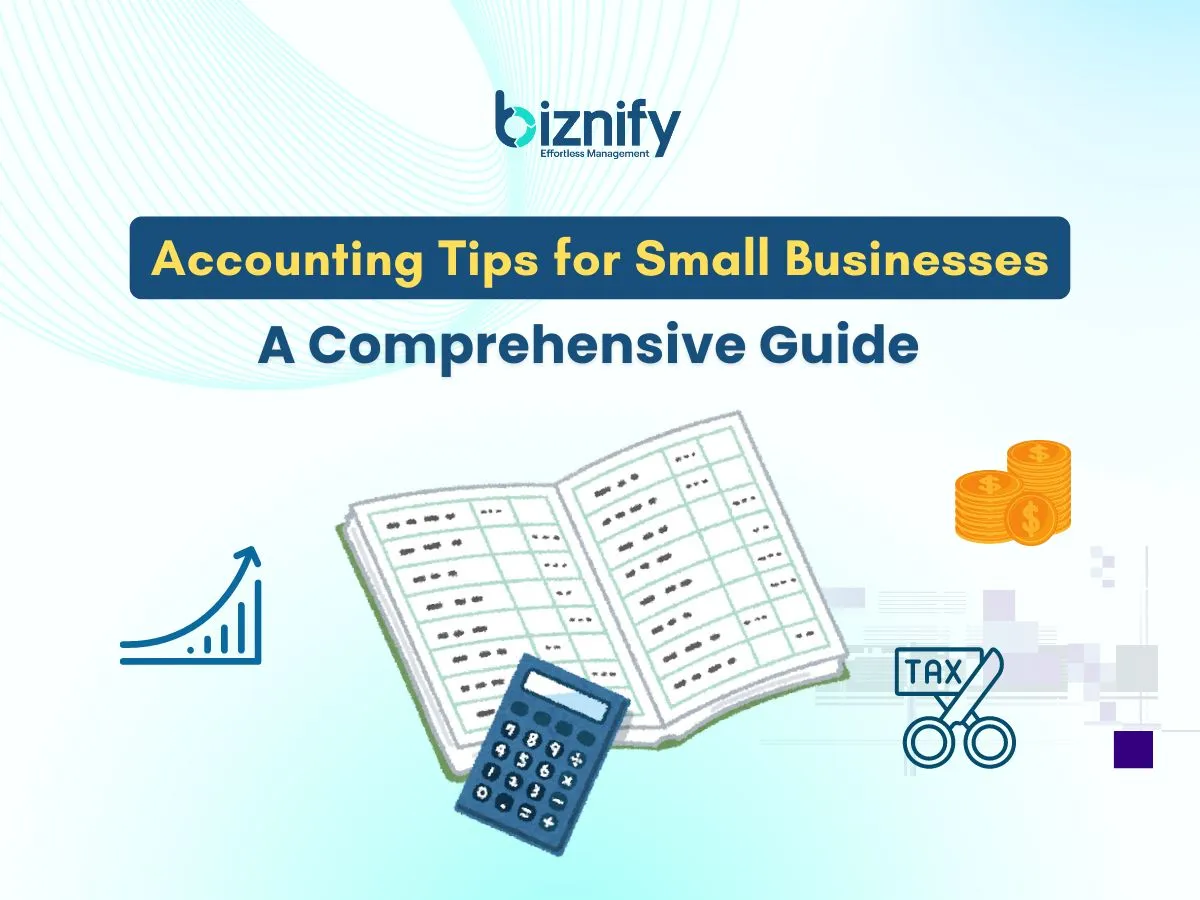
In the fast-paced world of entrepreneurship, staying on top of your finances is non-negotiable. Yet, for many small business owners, accounting often feels like a daunting task, filled with complexities that are easy to overlook. That's why it's crucial to arm yourself with practical accounting tips for small businesses not just to survive, but to thrive in today’s competitive market.
Whether you’re just starting out or looking to refine your financial processes, mastering the basics of small business accounting is essential. From tracking every expense meticulously to ensuring your cash flow remains steady, these strategies are the backbone of a healthy business. Moreover, understanding your tax obligations and keeping your financial records organized can save you from costly mistakes down the line.
In this guide, we'll break down the most effective accounting tips tailored specifically for small businesses. We'll dive into the tools and techniques that can simplify your bookkeeping, offer strategies to avoid common pitfalls and provide you with the insights needed to make informed financial decisions. By the end, you'll have a clear roadmap to managing your business's finances with confidence and ease.
Just as a well-kept ledger reflects the stability of a business, mastering these accounting tips will lay the groundwork for your company's long-term success.
As a small business owner, you wear many hats from managing operations to marketing your products or services. But one of the most critical roles you play is that of the financial steward. Without a firm grasp of small business accounting, even the most promising ventures can falter. Accounting isn't just about keeping track of numbers; it's about gaining insights into your business’s financial health, making informed decisions, and ensuring long-term success.
Before we dive into specific accounting tips for Small Businesses, let's explore why accounting is so vital for your business and familiarize ourselves with the key terms that will help you navigate this essential aspect of entrepreneurship.
Accounting isn’t just a necessary task for tax season it's the backbone of your business’s financial health. For small businesses, having a robust accounting system in place is crucial for sustainability and growth.
Proper accounting allows you to track your income and expenses meticulously, giving you a clear picture of your profitability. It helps you make informed decisions about where to invest, when to cut costs, and how to plan for the future.
Without accurate accounting, even the most successful businesses can face financial difficulties. From managing cash flow to ensuring you're prepared for tax obligations, accounting provides the data-driven insights needed to navigate the complexities of business ownership.
Moreover, a well-maintained accounting system can attract investors and lenders by demonstrating your business's financial stability, which is vital for securing funding and fostering long-term growth.
Understanding key accounting terms is essential for interpreting your financial statements and making sound business decisions. Here are some of the most important concepts every small business owner should be familiar with:
Assets: These are resources owned by your business that have economic value, such as cash, equipment, inventory, and real estate. Assets are categorized as current (e.g., cash, accounts receivable) or non-current (e.g., property, equipment).
Liabilities: Liabilities represent what your business owes to others, such as loans, accounts payable, or mortgages. Like assets, liabilities can be current (due within a year) or long-term.
Equity: Equity is the owner's claim on the business's assets after all liabilities have been deducted. It represents the value that would be returned to shareholders if all assets were liquidated and debts paid off. In a small business, this is often referred to as owner’s equity.
Revenue: Revenue is the total amount of money your business earns from sales of goods or services before any expenses are deducted. It's a key indicator of business performance.
Expenses: Expenses are the costs incurred in the process of generating revenue, such as rent, utilities, payroll, and materials. Tracking expenses is critical for managing profitability and understanding where your money is going.
Profit and Loss Statement (P&L): Also known as an income statement, this document summarizes your revenues, costs, and expenses during a specific period, showing your net profit or loss.
Balance Sheet: A financial statement that provides a snapshot of your business’s financial position at a given point in time, detailing your assets, liabilities, and equity.
Cash Flow: The movement of money in and out of your business. Positive cash flow means more money is coming in than going out, which is essential for day-to-day operations.
By familiarizing yourself with these terms, you'll be better equipped to understand your financial statements and manage your business’s finances effectively. Whether you’re reviewing your monthly P&L or planning your next big investment, these accounting fundamentals will help guide your decision-making process and set your business on a path to sustained success.
Managing the finances of a small business can be challenging, but with the right strategies in place, you can ensure your business remains on a strong financial footing. Here are 15 essential accounting tips that will help streamline your financial management, reduce stress, and set your business up for long-term success.
One of the most crucial steps in small business accounting is maintaining separate accounts for your personal and business finances. Mixing the two can lead to significant complications, especially during tax season. By keeping distinct accounts, you simplify record-keeping and ensure that your business transactions are clear and traceable.
Real-life example: A small business owner who mixed personal and business expenses faced a major audit, leading to a lengthy and stressful tax investigation. By keeping finances separate, they could have avoided this situation and maintained clear financial records.
Automation is a game-changer for small businesses, helping to reduce errors and save valuable time. By using accounting software, you can automate invoicing, expense tracking, payroll, and even tax preparation. This not only increases efficiency but also minimizes the risk of human error.
Benefits of automation: Automating routine tasks allows you to focus on strategic aspects of your business, while also ensuring accuracy and consistency in your financial records.
Bank reconciliation is a critical process that helps you catch discrepancies early. By comparing your bank statements with your accounting records on a monthly basis, you can identify and resolve any errors, such as double charges or missed payments.
Monthly reconciliation: This practice ensures that your financial records are accurate and up-to-date, providing a true picture of your cash flow.
Accurate expense tracking is essential for understanding where your money is going and for maximizing tax deductions. Use tools and apps to log every business expense, from office supplies to client lunches.
Using tools and apps: Apps like Expensify or QuickBooks make it easy to track and categorize expenses, ensuring that nothing slips through the cracks.
Organized financial records are the backbone of efficient accounting. Implement best practices for record-keeping, such as digitizing receipts, organizing invoices, and keeping financial documents well-categorized and easily accessible.
Best practices: Regularly update your records, store documents securely, and create backups to prevent data loss.
Taxes can be complex, but it’s vital to understand the common taxes applicable to small businesses, such as income tax, payroll tax, and sales tax. Knowing your tax obligations helps you avoid penalties and ensures compliance with the law.
Overview of common taxes: Familiarize yourself with deadlines, filing requirements, and any industry-specific taxes that may apply to your business.
Budgeting for tax payments is essential to avoid surprises when tax season rolls around. Regularly set aside a portion of your income to cover your tax liabilities, ensuring you’re not caught off guard by a large tax bill.
Strategies for budgeting: Consider using a separate savings account for taxes and make estimated quarterly tax payments if required.
Effective cash flow management depends on timely collections and payments. Regularly monitor your accounts receivable to ensure customers pay on time, and manage your accounts payable to avoid late fees and maintain good supplier relationships.
Ensuring timely collections: Implement clear payment terms and follow up promptly on overdue invoices to keep your cash flow healthy.
Many businesses experience seasonal fluctuations in sales. To navigate these ups and downs, create a budget that accounts for peak and off-peak seasons. This helps ensure you have sufficient cash reserves during slower periods.
Budgeting for fluctuations: Analyze past financial data to predict seasonal trends and adjust your spending and savings accordingly.
Your financial statements income statements, balance sheets, and cash flow statements provide a comprehensive overview of your business’s financial health. Regularly reviewing these documents allows you to make informed decisions and identify areas for improvement.
Understanding financial statements: Learn how to interpret these documents to assess profitability, liquidity, and overall financial stability.
Internal controls are procedures and policies designed to prevent fraud and errors within your business. These can include separating duties among staff, requiring approvals for large expenditures, and regularly auditing financial records.
Preventing fraud and errors: By implementing strong internal controls, you reduce the risk of financial mismanagement and ensure accuracy in your accounting.
Financial regulations can change, and staying informed about new laws or updates is crucial for maintaining compliance. Regularly consult reliable sources or seek professional advice to keep your business in line with current regulations.
Importance of staying updated: Keeping up with changes helps you avoid legal issues and ensures your business operations are within the bounds of the law.
Major expenses, such as equipment purchases or business expansions, require careful planning. Create a capital expenditure budget to ensure you have the necessary funds set aside without disrupting your cash flow.
Creating a budget: Plan for these expenses well in advance, considering financing options and the potential return on investment.
The world of accounting is ever-evolving, and continuous education is key to staying ahead. Take advantage of resources and courses to improve your financial literacy and keep your accounting skills sharp.
Resources for education: Consider online courses, webinars, or workshops that focus on small business accounting and financial management.
As your business grows, managing your finances can become more complex. Hiring a professional accountant can provide expert guidance, help you navigate complex tax issues, and ensure your financial records are in order.
Benefits of professional guidance: A professional can offer personalized advice, save you time, and give you peace of mind that your finances are being handled correctly.
By implementing these accounting tips, you can streamline your financial management, reduce stress, and focus on what really matters growing your business. Each of these strategies plays a vital role in maintaining the financial health of your business, ensuring that you're prepared for both the challenges and opportunities that lie ahead.
Once you've decided on an accounting method, the next step is to choose the right accounting software to support your business’s needs. The right software can streamline your financial processes, reduce errors, and save you valuable time.
Here are some popular accounting software options suitable for small businesses, including Biznify, the leading scouting software in Bangladesh.
Biznify is the number one scouting software in Bangladesh, designed specifically for small businesses looking to streamline their accounting processes. It offers features like automated expense tracking, real-time financial reporting, and easy integration with local banking systems.
Best For: Small businesses in Bangladesh that need a locally tailored solution with advanced scouting and accounting features.
Pros:
Tailored to the specific needs of Bangladeshi businesses.
User-friendly interface with local support.
Advanced features like automated scouting reports for financial opportunities.
Business Needs: Choose software that meets your specific requirements, whether it’s invoicing, payroll, or detailed financial reporting.
Scalability: Consider whether the software can grow with your business and accommodate more complex accounting needs as your business expands.
Ease of Use: The software should be user-friendly and not require extensive training or technical knowledge.
Integration: Look for software that integrates well with other tools you use, such as CRM systems, e-commerce platforms, or banking apps.
Support: Reliable customer support is crucial, especially if you’re not an accounting expert. Choose software with strong customer service and available resources.
By selecting the right accounting software, you can significantly reduce the time and effort spent on managing your finances, allowing you to focus more on growing your business.
Whether you choose a globally recognized tool like QuickBooks or a locally optimized solution like Biznify, ensure that the software aligns with your business goals and simplifies your accounting tasks.
Running a small business comes with its share of challenges, and managing your finances effectively is one of the most critical. However, even with the best intentions, it's easy to make accounting mistakes that can have serious consequences for your business.
To help you steer clear of these pitfalls, here are some common accounting mistakes to avoid and tips on how to prevent them.
Explanation: Failing to regularly back up your financial data can lead to catastrophic losses if your systems crash or if your data is compromised by malware or other cybersecurity threats.
How to Avoid: Use automated cloud-based solutions to back up your financial records daily. Ensure that backups are stored securely and are easily recoverable in case of an emergency.
Missing Tax Deadlines
Explanation: Missing tax filing deadlines can result in hefty penalties, interest charges, and unnecessary stress. It can also trigger audits, which can be time-consuming and costly.
How to Avoid: Set up a calendar with reminders for all tax-related deadlines, including quarterly estimated payments, payroll taxes, and annual returns. Consider working with a professional accountant who can help you stay on track.
Explanation: Combining personal and business expenses can create confusion in your financial records, making it difficult to track business performance accurately. It can also complicate tax filings and increase the risk of an audit.
How to Avoid: Always maintain separate bank accounts and credit cards for your business. Clearly categorize transactions and avoid using personal funds for business expenses whenever possible.
Explanation: If you don’t regularly reconcile your bank accounts with your accounting records, you may overlook errors, unauthorized transactions, or discrepancies that could affect your cash flow.
How to Avoid: Schedule monthly reconciliations to compare your bank statements with your accounting records. Use accounting software that simplifies the reconciliation process and alerts you to discrepancies.
Explanation: Small, overlooked expenses can add up over time, leading to inaccurate financial statements and missed tax deductions. Every dollar counts, especially for small businesses.
How to Avoid: Implement a system for tracking every expense, no matter how small. Use apps or software that allow you to record expenses in real-time, ensuring that nothing slips through the cracks.
Explanation: Inaccurate or incomplete records can lead to poor financial decision-making, increased tax liability, and challenges during audits. It can also hinder your ability to secure loans or investments.
How to Avoid: Maintain meticulous records of all financial transactions, including receipts, invoices, and bank statements. Regularly review and update your records to ensure accuracy.
Explanation: Failing to monitor and collect accounts receivable promptly can lead to cash flow problems and financial instability. Uncollected payments can also result in bad debt.
How to Avoid: Implement a clear invoicing and follow-up process. Set payment terms and follow up on overdue invoices promptly. Consider using accounting software that automates reminders and tracks payment statuses.
Explanation: Poor cash flow management is one of the leading causes of small business failure. Without enough cash on hand, you may struggle to cover operating expenses, pay suppliers, or seize growth opportunities.
How to Avoid: Monitor your cash flow closely, and create cash flow forecasts to anticipate future needs. Ensure that you have a buffer for unexpected expenses and avoid overcommitting financially.
Explanation: Misclassifying expenses can distort your financial statements, lead to inaccurate tax filings, and make it difficult to analyze your business’s financial health.
How to Avoid: Use accounting software that allows for proper categorization of expenses. Regularly review and adjust categories to ensure they reflect your business activities accurately.
Explanation: Not planning for tax payments can leave you scrambling for funds when taxes are due, potentially leading to cash flow issues or the need to take on debt.
How to Avoid: Estimate your tax obligations throughout the year and set aside funds regularly. Consider working with an accountant to ensure you’re taking advantage of all available deductions and credits.
By being aware of these common accounting mistakes and taking proactive steps to avoid them, you can protect your business from unnecessary financial risks. Ensuring that your accounting practices are solid not only saves you time and money but also contributes to the overall stability and growth of your business.
As your small business grows, the complexities of managing your finances will increase. While leveraging technology can simplify many aspects of accounting, there comes a time when professional help is essential to ensure that your business remains on a solid financial footing.
Bringing in a professional accountant or bookkeeper can save you from costly mistakes and allow you to focus on running your business. Here are some key signs that it might be time to seek professional help:
Business Growth: As your business expands, with more transactions, employees, or revenue streams, managing your finances can become overwhelming. A professional can help you manage this growth effectively.
Complex Tax Situations: If your tax obligations are becoming more complicated perhaps you're dealing with multiple revenue streams, international sales, or large deductions it’s wise to hire an accountant who can navigate these complexities.
Time Constraints: If you find yourself spending more time managing finances than running your business, it’s a clear sign that you need help. An accountant can take this burden off your shoulders, allowing you to focus on growth.
Audit Risk: If you're concerned about the accuracy of your financial records or if you’ve been flagged for an audit, a professional accountant can ensure everything is in order and provide peace of mind.
Choosing the right accountant or bookkeeper is crucial for your business’s financial health. Here’s what to consider:
Experience and Expertise: Look for someone with experience in small business accounting, particularly in your industry. They should understand the specific challenges you face and have a track record of helping businesses like yours.
Qualifications and Certifications: Ensure that your accountant is certified and has the necessary qualifications. For example, a CPA (Certified Public Accountant) designation is a good indicator of professionalism and expertise.
Technology Proficiency: If you’re using cloud accounting or integrated systems like Biznify, ensure your accountant is comfortable working with these tools. This proficiency will make collaboration smoother and more effective.
Communication Skills: Your accountant should be able to explain complex financial concepts in a way that you can understand. Good communication is essential for a successful working relationship.
References and Reviews: Check online reviews and ask for references to get a sense of the accountant's reputation and reliability. Speaking with other small business owners can provide valuable insights.
Cost and Fees: Understand the fee structure and ensure it fits within your budget. Some accountants charge hourly, while others may offer flat rates for specific services.
Taking control of your business’s finances is essential for success, and with the right tools and strategies, it doesn’t have to be daunting.
From leveraging cloud accounting to integrating your systems with tools like Biznify, technology can simplify your financial management and give you the insights needed to make informed decisions. Knowing when to seek professional help is equally important, as it ensures that your business remains on a strong financial footing as it grows.
By staying proactive, using the right technology, and bringing in expert help when needed, you can navigate the financial landscape with confidence. This approach not only helps you avoid common pitfalls but also sets the stage for sustained growth and success.
Remember, your financial health is the foundation of your business take charge of it, and your business will thrive.
.webp)

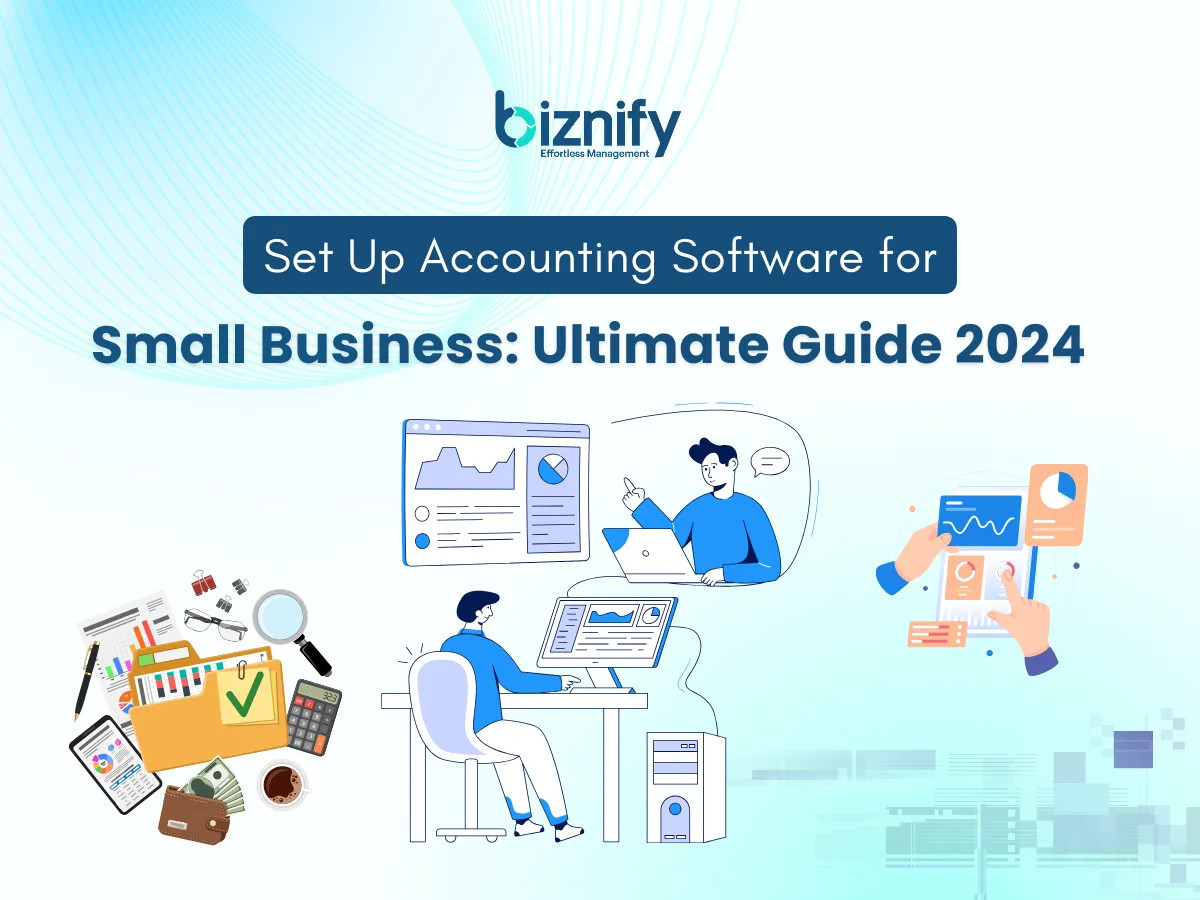
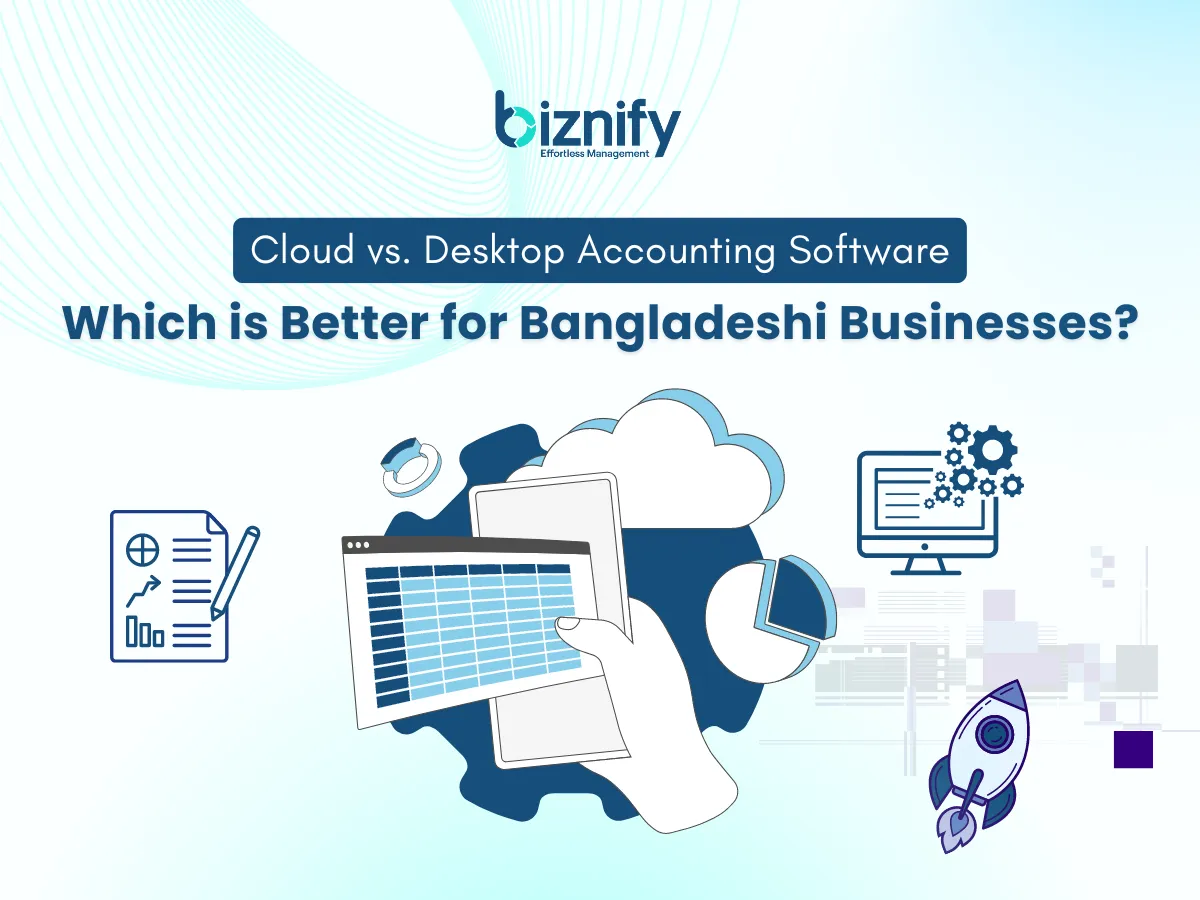
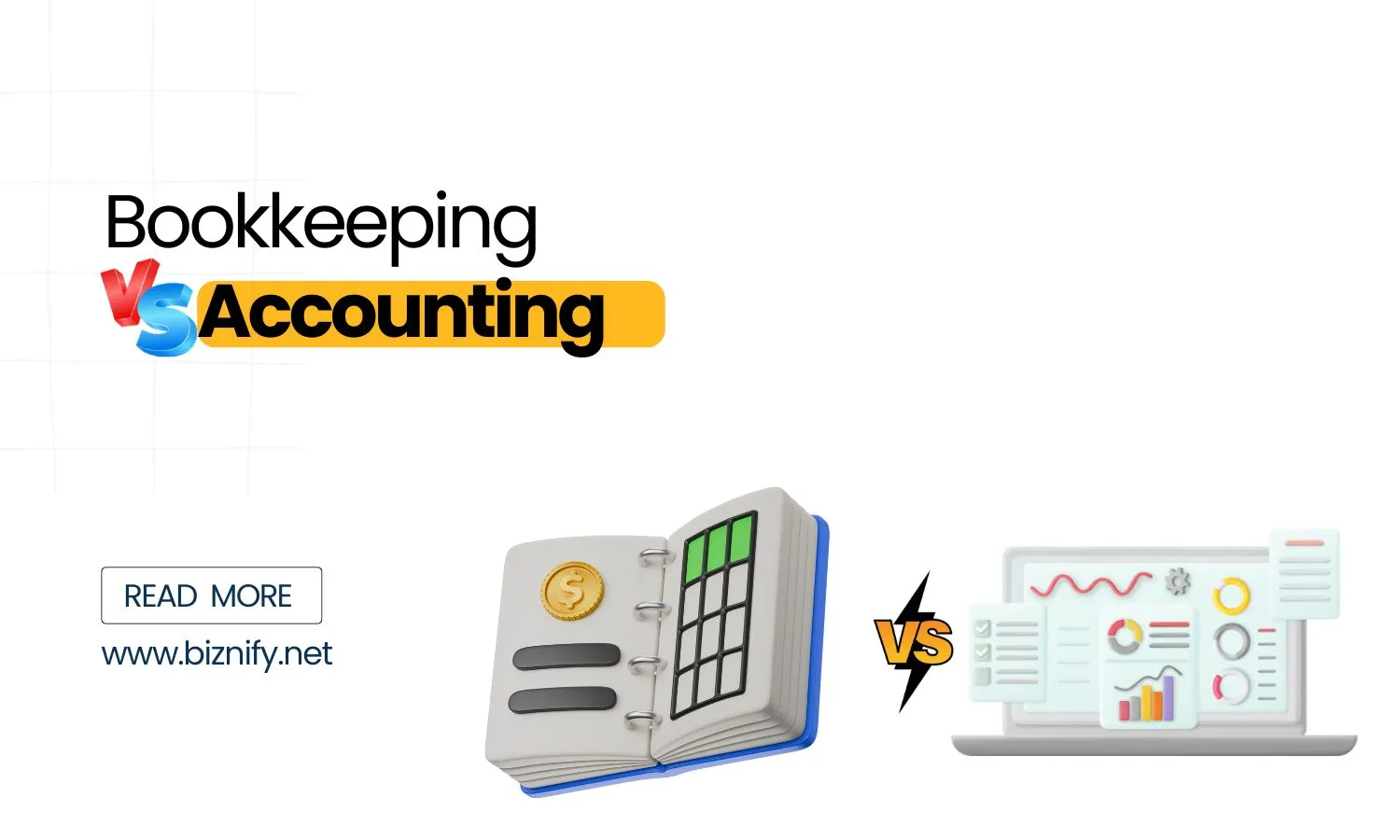
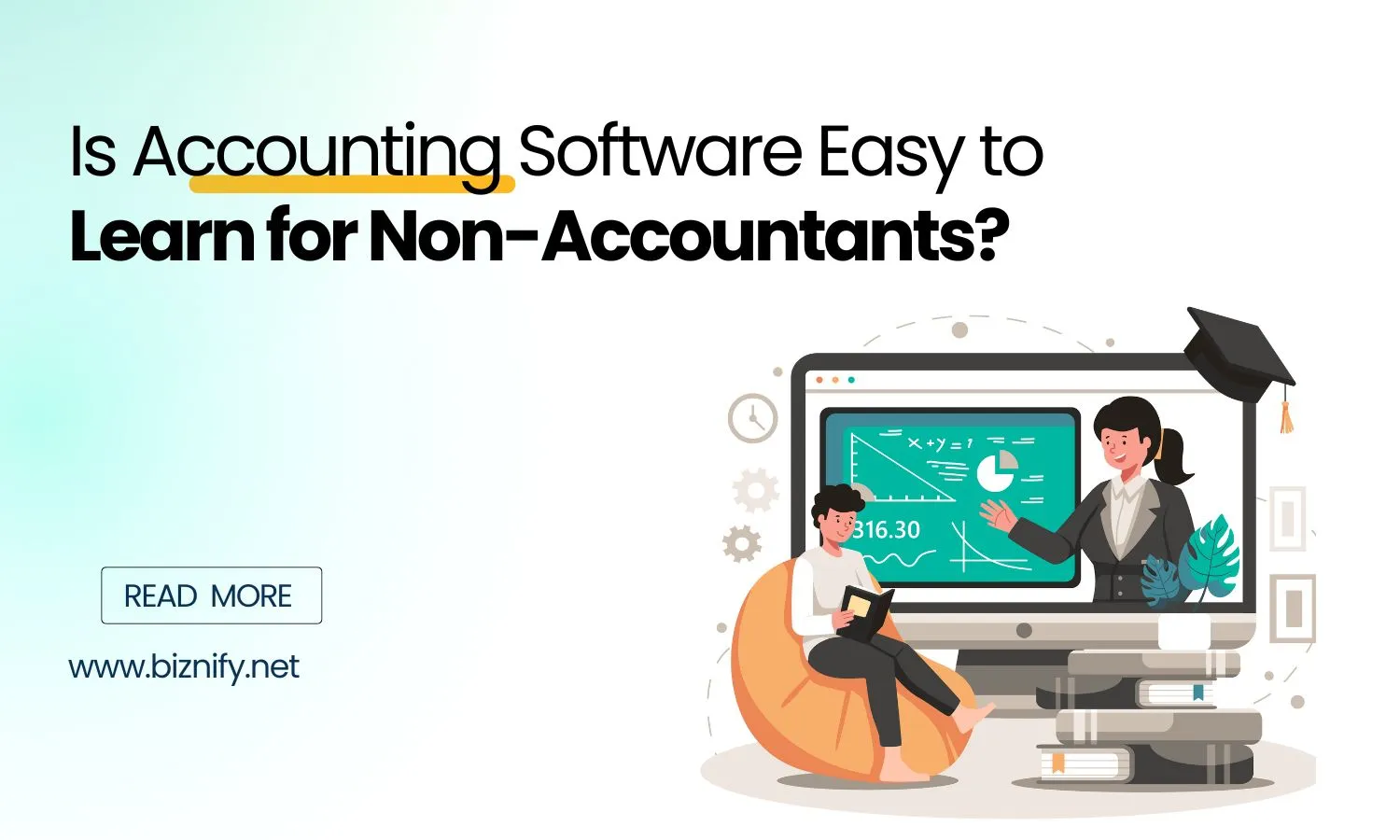
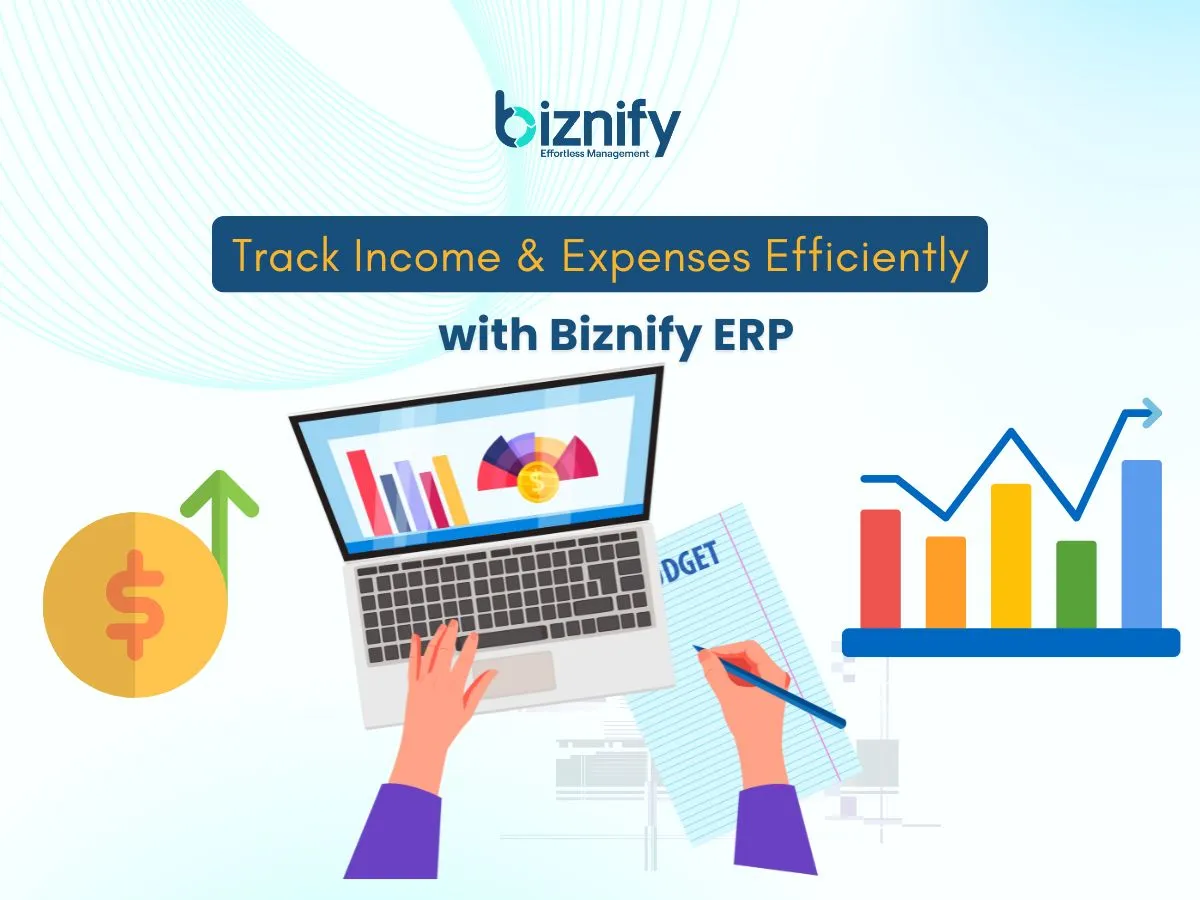
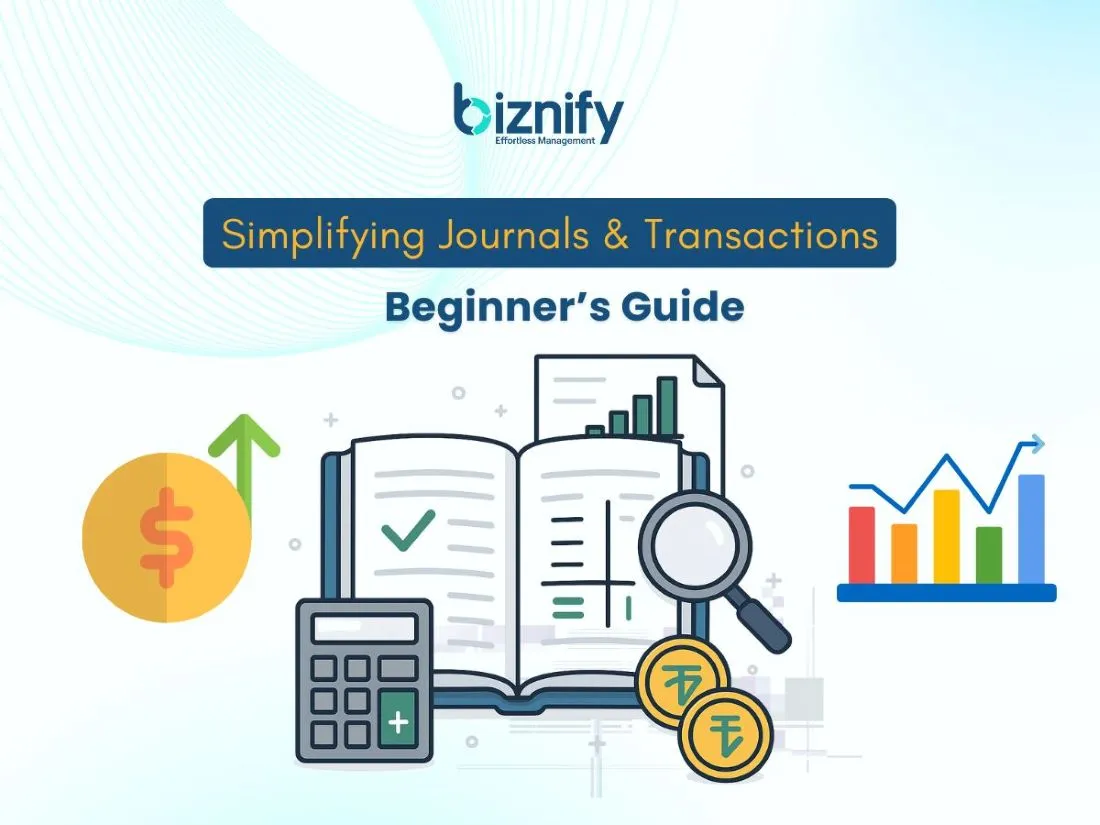
Just exploring ERP or unsure which modules you need? The Biznify team’s here with straight answers.